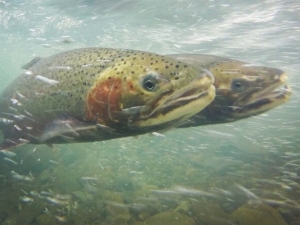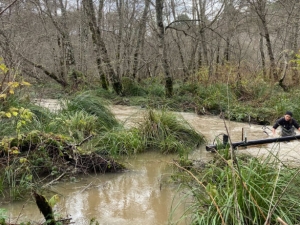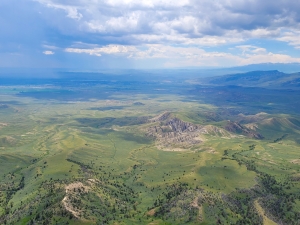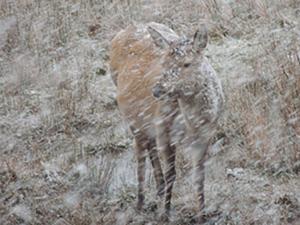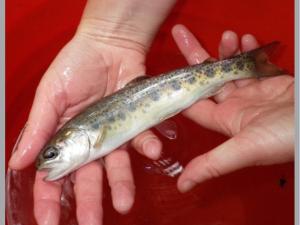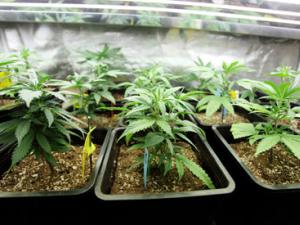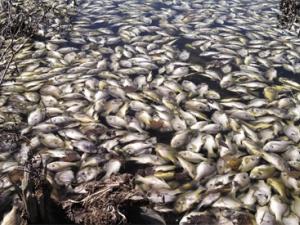Research Bio
The Carlson Lab studies the evolutionary ecology and conservation of freshwater fishes. They seek to understand the dynamics of California’s inland fishes, and the factors that shape these populations and influence their persistence.
Some topics that interest the lab include:
- Life history portfolios and resilience
- Habitat mosaics and connectivity
- Impacts of drought and climate change on stream fishes
- Ecological and evolutionary impacts of management (water, fishery, hatchery, protected area)
- Evolutionary enlightened management
Much of their research is field-based and incorporates elements of behavioral, population, and community ecology. Their research combines various techniques like tagging and tracking individually marked fish, experimental manipulations in the field, direct observations, comparative studies, and modeling.
Read more about their research on the Carlson Lab website.
Research Expertise and Interest
fish ecology, stream ecology, freshwater ecology, northern California rivers, Pacific salmon, conservation biology
In the News
A Single Dry Winter Decimated California’s Salmon and Trout Populations
Diversity in Coho Salmon Could Be Key to Species Survival
UC Berkeley Launches New Center Focused on Environmental Stewardship
Climate change has the potential to alter natural selection, study finds
Small Salmon, Big Threat
Drought and the growing water demands of agriculture and a changing climate are creating a “knife edge” of survival for young salmon and steelhead, says UC Berkeley fish ecologist Stephanie Carlson. She is working to determine minimum water levels needed to sustain the fish.
Environment Takes Big Hit From Water-Intensive Marijuana Cultivation
The debate over the legalization of marijuana has focused primarily on questions of law, policy and health. But a new paper co-authored by UC Berkeley researchers shines a spotlight on the environmental damage caused by illegal marijuana plantations in sensitive watersheds.
Rise in Mass Die-Offs Seen Among Birds, Fish and Marine Invertebrates
An analysis of 727 studies reveals that there have been more instances of rapid, catastrophic animal die-offs over the past 75 years. These mass kills appear to have hit birds, fish and marine invertebrates harder than other species.
Five Early-Career Faculty Named Rose Hills Innovators
Eel River Observatory seeks clues to watershed’s future
University of California, Berkeley, scientists will receive $4,900,000 over the next five years to study the nearly 10,000 square kilometer Eel River watershed in Northern California and how its vegetation, geology and topography affect water flow all the way to the Pacific Ocean.

